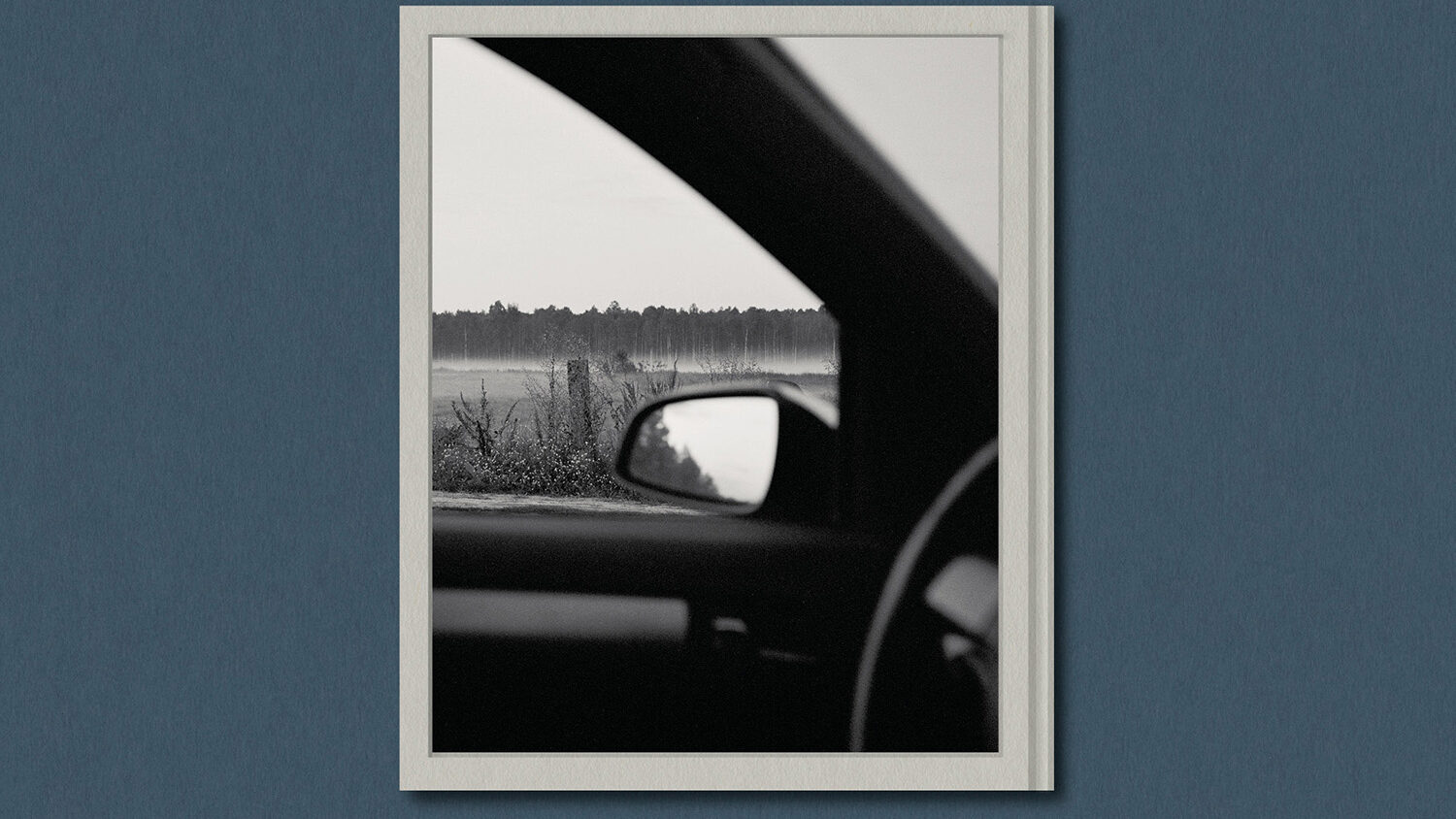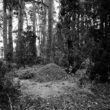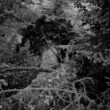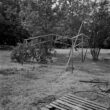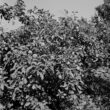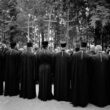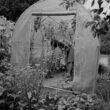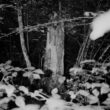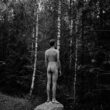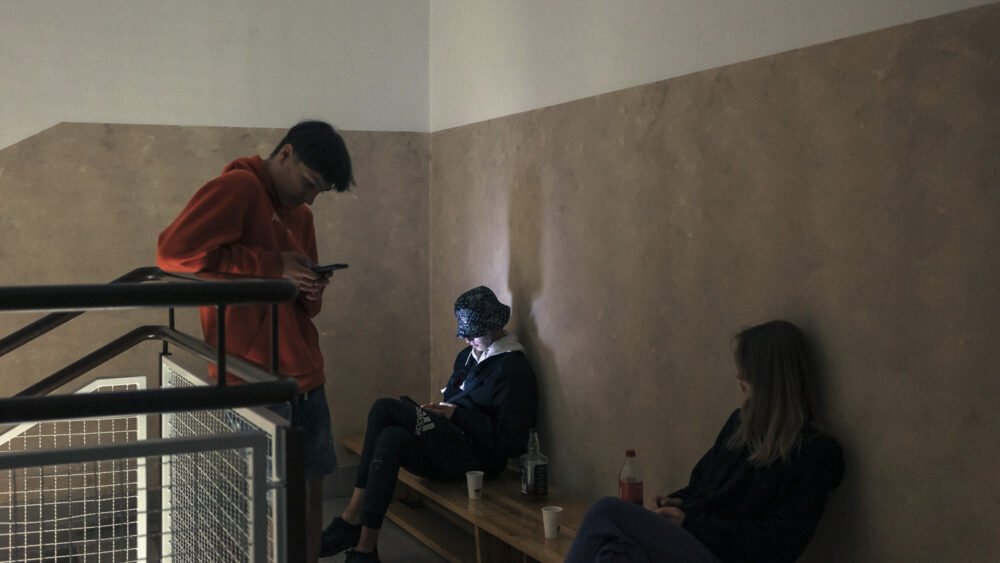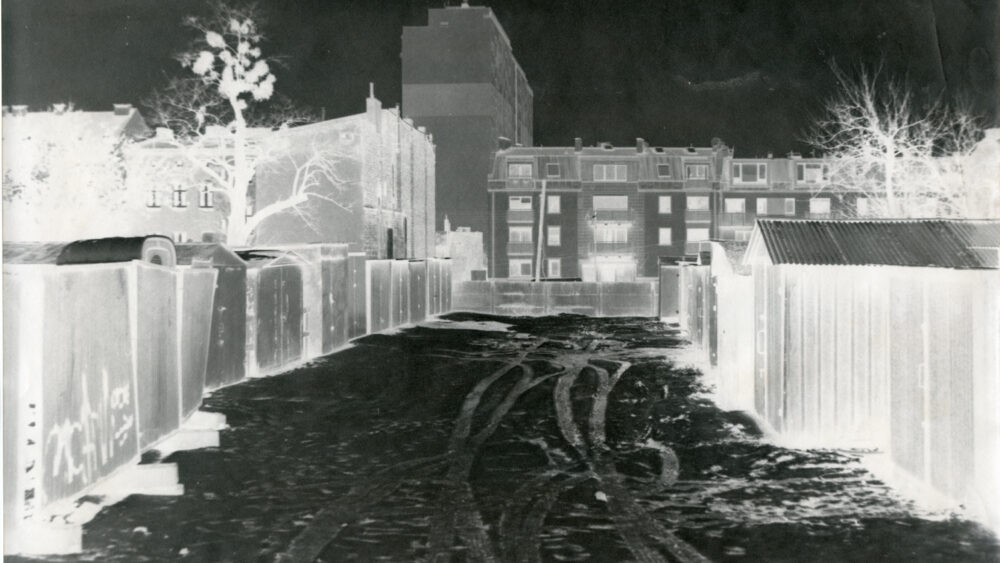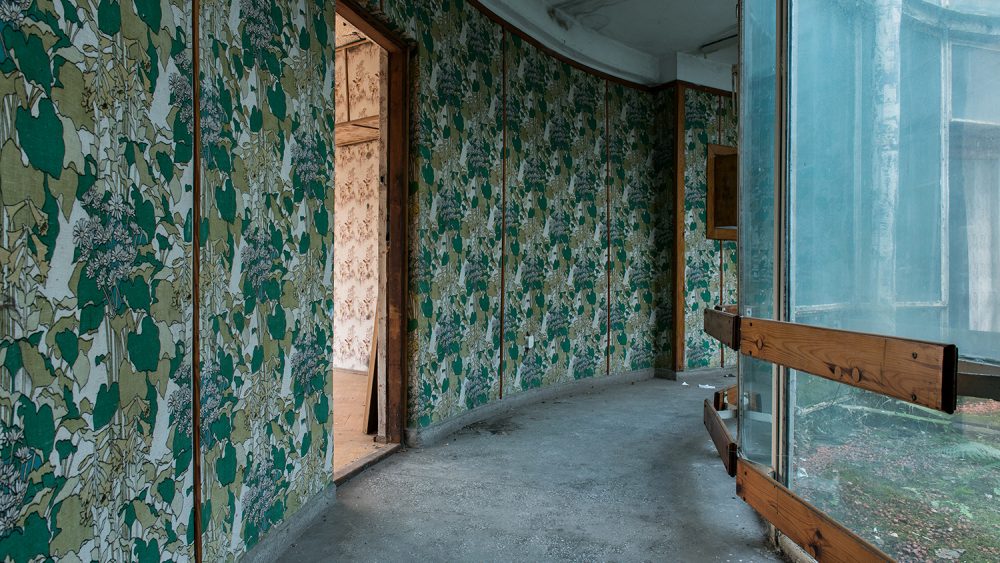Stepping out into this almost empty road
Stepping Out Into This Almost Empty Road looks at the moment of change when the most idyllic scenario becomes a horror of a political regime. From picking apples in the orchard to tear gas on the street. The book combines photographic material and texts that revolve around the permanent in-between state that is inseparable from the notion of migration. What happens when you’re forced to leave something behind and start anew elsewhere? What tools do you use to visualise the loss and the absence? How do you build your identity when the dialect you speak is rejected as a language? Despite being focused on stories of a specific community, the book makes visible what is universal in the context of transition.
Being aware of the discrepancies of representation within the political apparatus of photography – who is looking and who is being looked at – Orpik choses to work on the basis of invitation and collaboration rather than stepping into something one doesn’t belong to. For her the encounter itself was more important than its outcome. The community was portrayed in the way they decided for – leaving their traces only in text or photographed objects and landscapes that surround them on a daily basis. The process of Stepping Out Into This Almost Empty Road became a reflection on what constitutes neighbourhood, the experience of migration and how the values of diversity can bring people together.
With regards to the 2020 elections in Belarus and the subsequent wave of protests or the ongoing refugee crisis evolving on the Polish Eastern border, the questions on the notion of intersectional solidarity and the border are recurring in the public debate. The neighbours seen by the European citizens as strangers became familiar faces. Orpik decided to move away from Polish, in which the interviews were conducted, and leave English and Belarusian translation as the base of the book. It was important for her to make the stories accessible and at the same time refer to a language which for many symbolises Belarusian freedom.
Monika Orpik (1997) is a Polish visual artist based in Hamburg. Her work stands at the intersection of contemporary art, research and social practice. She works with photography, book making, text and sound.
